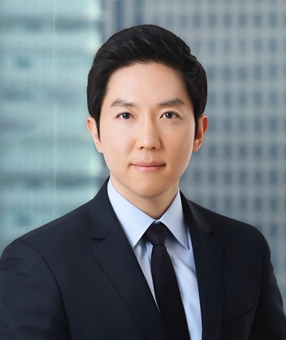According to a press release issued by the Korea Fair Trade Commission (the "KFTC") on March 3, 2021, the KFTC imposed sanctions on a Korean pharmaceutical company (the "Company") for abuse of intellectual property rights ("IPR"). More specifically, the KFTC imposed a corrective order and an administrative fine of KRW 2.27 billion (roughly USD 2 million) on the Company (patentee) for (i) filing a patent infringement action against a generic company to hinder its market entry even when it knew there was no infringement ("Conduct 1"), and (ii) interfering with the business activities of a generic company by filing a patent infringement action after having obtained the patent based on fraudulent data ("Conduct 2"). The relevant companies were also subject to criminal referral. The KFTC determined that these acts constituted unfair solicitation of customers, a type of unfair trade practice, in violation of the Monopoly Regulation and Fair Trade Law (the "FTL").
The specific facts are unknown as the KFTC has yet to issue a written decision, but the press release provides the following reasons as to why the foregoing conduct violates the FTL.
-
As for Conduct 1, the KFTC found that based on test results, the Company was aware even before filing the patent infringement action that the generic product did not fall within the patent scope. Regardless, the Company still filed the action at the start of the year when large hospitals held tenders and actively notified such hospitals that supply of generic drugs under patent dispute may potentially be suspended.
-
As for Conduct 2, the KFTC found that the Company manipulated or falsified data such as bioequivalence tests to obtain its formulation patent. Based on such patent, the Company filed a patent infringement action against a generic company. Then, the Company used the patent infringement action in its promotional activities, thereby unfairly inducing the generic company's customers to transact with the Company.
This KFTC decision is noteworthy because it is the first FTL sanction imposed for sham patent infringement litigation.
The decision is also noteworthy in that the violation was for an unfair trade practice (i.e., unfair solicitation of customers). The KFTC usually tries to enforce the FTL for IPR abuse as an abuse of market dominant position. To elaborate, the KFTC's Guidelines on Abuse of Market Dominant Position (KFTC Notification No. 2015-15) explicitly prohibits a market dominant entity from unfairly using judicial or administrative procedures such as patent infringement actions or patent invalidation actions in connection to its IPR to interfere with the business activities of another. The KFTC's Guidelines on Improper Exercise of IPR (KFTC Regulations No. 333) also basically regulates the conduct of market dominant entities. Meanwhile, the KFTC's Guidelines on Unfair Trade Practices (KFTC Regulations No. 351) only prescribes the "use of unfair competitive means to disrupt proper competition order" as an element of unfair customer solicitation. This case confirms that engaging in IPR abuse can constitute the "use of unfair competitive means to disrupt proper competition order." In other words, regardless of whether an entity is a market dominant entity, if an entity abuses its patent rights to interfere with the business activities of a competitor, such conduct can be held as an unfair trade practice in violation of the FTL.
For your reference, this is also the first case sanctioned in connection to the follow-on investigation by the KFTC after an industry wide IPR survey of the pharmaceutical industry back in 2017.
According to the press release, although there are no similar cases pending, the KFTC plans to continue its enforcement especially in the pharmaceutical industry where original drug companies may abuse their patent rights. Further, given that patent infringement disputes are no longer limited to the patent issue but can expand into an FTL issue, continued monitoring of future developments in this case, including what happens at the Prosecutors' Office stage, will be needed.
Related Topics
#Sham Patent Infringement Litigation #KFTC #Health #Legal Update










